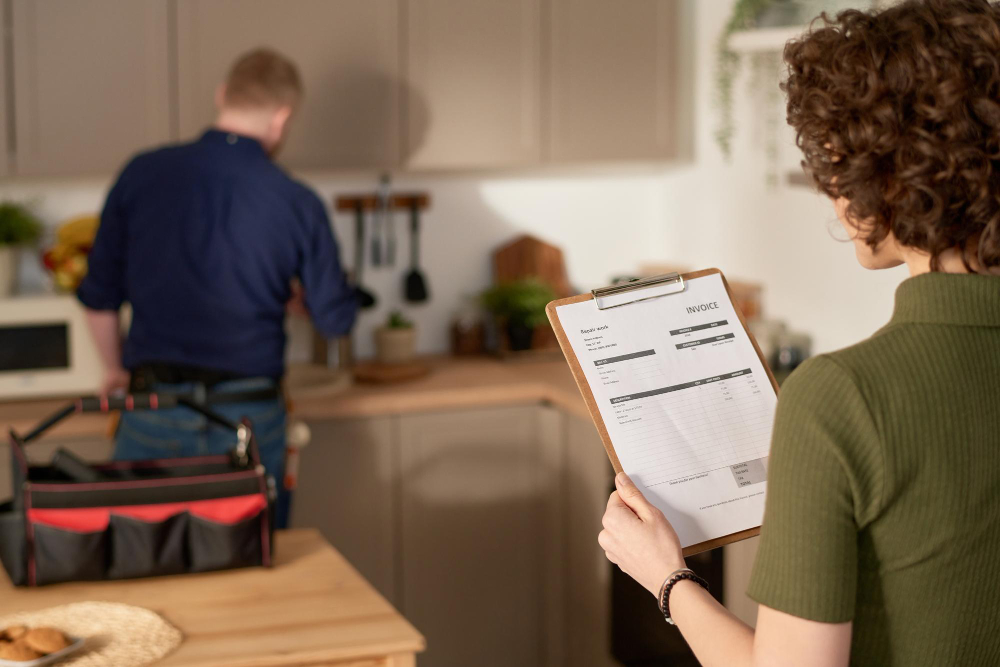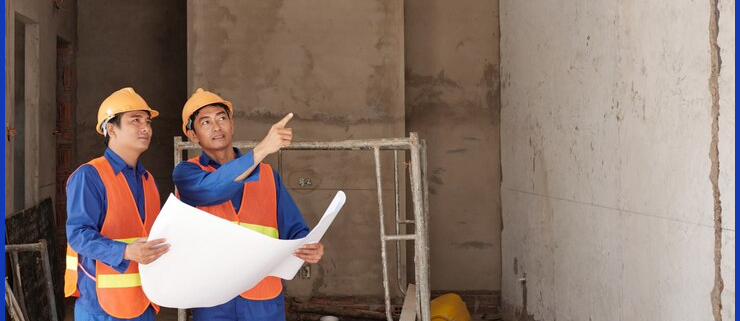What Do Home Inspectors Look For During an Inspection
When buying a home, a thorough inspection is the first step of knowing that your the property is in good condition and free from major issues.
But what do home inspectors look for during an inspection? This question is common among prospective homeowners who want to understand the inspection process, what to expect, and how to read a home inspection report once it’s completed.
In this guide, we will break down the essential aspects of a home inspection, covering both the exterior and interior areas of the home.
The Basics of Home Inspections – What Do Home Inspectors Look For?

By having an idea on what home inspectors in Smyrna look for, you can better prepare for the inspection process and address any potential issues beforehand.
This knowledge can also help you make informed decisions during your home-buying journey, ensuring you invest in a property that meets your expectations and standards.
A home inspection is a thorough examination of a property, typically conducted by a certified professional, to identify any potential issues or necessary repairs. The main goal is to provide buyers with a comprehensive understanding of the property’s current state, ensuring there are no hidden surprises after the purchase.
Exterior Inspection
During the exterior inspection, home inspectors in Bear, DE, focus on several critical areas of the property to ensure its structural integrity and safety. Understanding what home inspectors look for outside the home can help you address any potential issues early on.
Roof and Gutters
New Castle Inspectors examine the roof for signs of damage, such as missing shingles, leaks, or wear and tear. They also check the gutters for proper drainage and any signs of blockage or damage that could lead to water issues.

Foundation and Structure
The foundation is checked for cracks, settling, or other signs of structural problems. Inspectors also look at the overall structure, including walls and supports, to ensure the home is stable and secure.
Exterior Walls and Siding
Inspectors assess the condition of the exterior walls and siding, looking for cracks, rot, or other damage that could affect the home’s integrity. Proper maintenance of these elements is crucial to prevent long-term issues.
Windows and Doors
Windows and doors are inspected for proper installation, function, and sealing. Inspectors look for signs of drafts, moisture, or other problems that could affect energy efficiency and security.
Landscaping and Drainage
The landscaping around the home is evaluated so it doesn’t negatively impact the foundation or cause drainage issues. Inspectors check for proper grading and the condition of any retaining walls or other features.
Interior Inspection
The interior inspection focuses on the various systems and components within the home to ensure they are in good working order. By understanding what home inspectors look for inside the home, you can better prepare and address any potential issues.
Electrical Systems
Inspectors thoroughly examine the electrical systems, including the main panel, wiring, outlets, and fixtures. They look for any signs of wear, outdated components, or safety hazards that need attention.
Plumbing Systems
The plumbing systems are checked for leaks, proper function, and any signs of damage. Inspectors assess pipes, fixtures, and water heaters to ensure everything is in good condition and up to code.
Heating, Ventilation, and Air Conditioning (HVAC)
The HVAC system is inspected to ensure it operates efficiently and safely. Inspectors check the furnace, air conditioning units, ductwork, and ventilation to identify any issues that could affect the home’s comfort and air quality.
Insulation and Ventilation
Proper insulation and ventilation are crucial for maintaining a comfortable and energy-efficient home. Inspectors check the insulation in attics and walls and ensure that ventilation systems are working correctly to prevent mold growth and other issues.
Safety Features
Inspectors look at fire safety measures, including smoke detectors, carbon monoxide detectors, and fire extinguishers, to ensure they are present and functioning. Safety compliance is essential for the well-being of the home’s occupants.
How to Prepare for a Home Inspection
Whether you are a homeowner getting ready to sell or a buyer anticipating an inspection, preparing for a home inspection in Hockessin can make the process smoother and help identify any potential issues beforehand.
Tips for Homeowners
| Preparation Tips | Details |
|---|---|
| Declutter and Clean | A clean and clutter-free home allows the inspector to access all areas easily. Ensure that basements, attics, and utility rooms are tidy and accessible. |
| Provide Clear Access | Make sure that all systems and components, such as electrical panels, water heaters, and HVAC units, are accessible. Clear any obstructions that might hinder the inspector’s ability to perform a thorough evaluation. |
| Address Minor Repairs | Fix any minor issues that could be easily addressed, such as leaky faucets, loose doorknobs, or missing light bulbs. These small repairs can make a significant difference in the overall impression of the home’s condition. |
| Check Safety Features | Ensure that all safety features, including smoke detectors, carbon monoxide detectors, and fire extinguishers, are in working order. Replace batteries if necessary and ensure that these devices are properly installed. |
| Gather Documentation | Have any relevant documentation ready for the inspector, including warranties, repair records, and receipts for major appliances and systems. This information can provide valuable context and reassurance to potential buyers. |
What Buyers Should Expect
| Expectation | Details |
|---|---|
| Understanding the Inspection Report | The inspection report will provide a detailed account of the property’s condition, highlighting any issues or areas of concern. It typically includes descriptions, photos, and recommendations for repairs or further evaluation. Buyers should review this report carefully to understand the property’s overall state. |
| Being Present During the Inspection | While not mandatory, being present during the inspection can be highly beneficial. It allows buyers to ask questions, gain a better understanding of the property’s condition, and see any issues firsthand. |
| Negotiating Repairs | Based on the inspection report, buyers may choose to negotiate repairs or ask for concessions from the seller. It’s important to prioritize significant issues that impact the home’s safety or functionality, rather than minor cosmetic concerns. |
| Next Steps After the Inspection | After receiving the inspection report, buyers should consult with their real estate agent to determine the best course of action. This may include requesting repairs, renegotiating the purchase price, or deciding whether to proceed with the transaction. |
Have A Smooth Home Inspection Today
By familiarizing yourself with the inspection process and preparing accordingly, you can ensure a thorough and efficient evaluation of the property. If you want peace of mind knowing that your home is in top shape, schedule your home inspection in Aston, PA, today!





Leave a Reply
Want to join the discussion?Feel free to contribute!